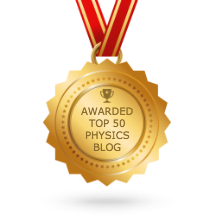Textbooks such as the 4th edition of Intermediate Physics for Medicine and Biology are essential for studying and learning a new topic, but other ways of learning can be equally effective (or, sometimes, even better). Today I want to mention two examples.
Each December, the Howard Hughes Medical Institute presents its Holiday Lectures on Science. These excellent seminars will be webcast live on December 2 and 3, starting at 10 A.M. This year, the lectures are about “Viral Outbreak: The Science of Emerging Disease.” Joseph DeRisi (University of California, San Francisco) and Eva Harris (University of California, Berkeley) will explain how to detect and fight infectious agents. The lectures will answer questions such as “Why is dengue fever becoming a worldwide health threat,” “What other epidemics are on the horizon,” and “How can we detect and counter emerging infectious diseases?” If you miss the live webcast, you can download an on-demand webcast starting December 6. I have watched these holiday lectures in the past, and they are very good. They are aimed at a serious high school student, or an undergraduate science major. They are also great for a physicist looking for a general introduction to a biological or medical topic.
Of course, the best way to learn science is to do science. For undergraduates (the main readers of Intermediate Physics for Medicine and Biology), the first exposure to doing science may come during a summer research project. Now is the time to start looking for summer research opportunities. One that I recommend is the Summer Internship Program in Biomedical Science at the National Institutes of Health. I worked at NIH for seven years, and it is a wonderful place to do scientific research. My advice is to apply for this internship today. You won’t regret it.
Subscribe to:
Post Comments (Atom)



No comments:
Post a Comment